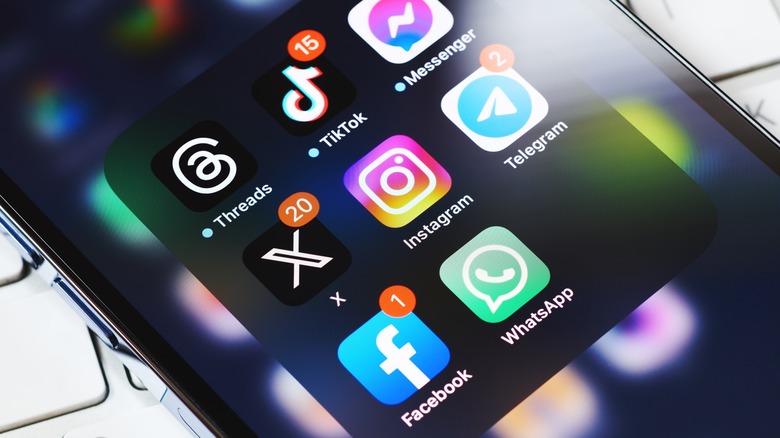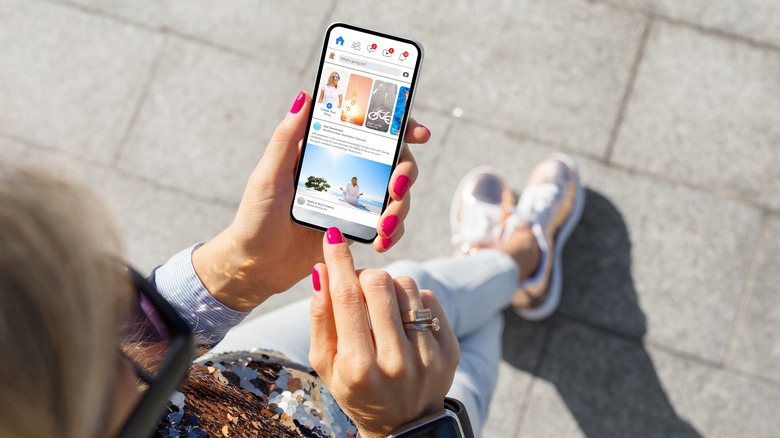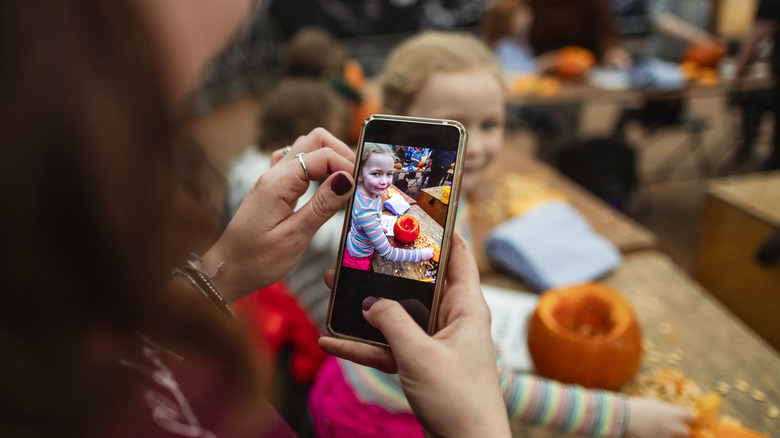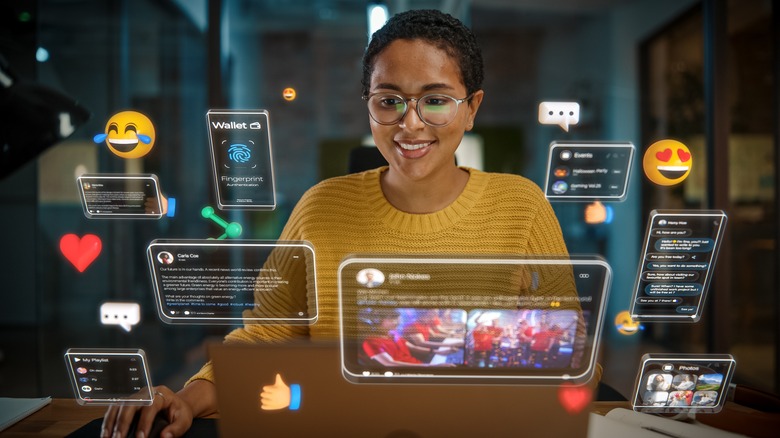5 Things You Should Never Share On Social Media
We live in the social media age and, for better or worse, most of us are active participants. As we post stories to Instagram about our daily lives, use AI tools to strengthen our LinkedIn profile, or engage in heated discussions with internet strangers on X, these platforms can begin to feel like an extension of who we are. But the more you use these apps, the more you risk sharing too much information, ultimately putting you or your family in danger.
It's easy to believe the people we've chatted with from our devices are truly friends and have our best interests at heart. We may forget that the internet is forever and how easily anything we post can be screenshotted and shared with people around the globe.
When we share too much about ourselves on social media, we draw a target on our backs, making ourselves vulnerable to all sorts of risks, such as identity theft, scams, and personal attacks. That doesn't mean you should delete all of your accounts and commit to leading a life without social media. Instead, you should try to find a balance and be mindful about what you share online. Here are some suggestions.
Safeguard your personal information
There's no getting around it, a lot of your personal information is already online. Even if you rarely post to social media, there's a good chance that a friend, family member, or acquaintance has tagged you in a photo or mentioned you in a post, which can potentially put you at risk. While you could make a special request that nobody in your circle ever post anything about you, you probably don't want to go to that extreme. However, knowing what personal details are possibly lurking on the web can help you protect yourself from the different types of cyberattacks scammers might target you with.
Cybercriminals are always trolling social media for tidbits of information that can help them do things like break into your accounts or apply for a credit card in your name. You should avoid posting unique identifying information on social media, including your birthdate, cities you've lived in, the year you graduated from high school or college, your age, or your address.
Scammers don't just use this personal information to break into your accounts or impersonate you. They might also use it to send you personalized phishing messages that get you to hand over even more of your information. If you realize your personal information has been compromised, it's a good idea to change the security questions you usually use to get into online accounts to ensure scammers can't use the information about you that's already been shared online.
Don't share travel plans
If you're like most people, you get excited when you have a trip planned and want to share that excitement with others. Social media is one of the most common ways to do this because it's an easy way to let your entire network know about your upcoming plans and share pictures and anecdotes about your journey. We've all seen posts where friends share their boarding passes or announce their departure from a specific airport with a Facebook check-in. While your friends may enjoy keeping up with your travels, and you may enjoy sharing them, doing so can put you at risk, especially if your posts are public.
When you share your whereabouts on social media, you give potential criminals a heads-up that you won't be home, potentially making your home a target for burglary and other crimes. Sharing your boarding pass may seem innocent, but it reveals all sorts of information, including your full name. The data on your board pass, including barcodes and QR codes, can be used to look up your booking information too, including your email address, itinerary, phone number, and emergency contact.
Once you arrive, avoid uploading photos that reveal your location. The safest option is to wait until you return before posting pictures to social media. However, if you decide to share a few photos of your travels, turn off geotags and post them after you've left the location.
Photos and information about children
As a proud parent, it's hard not to share information about your kids with your social network, also known as sharenting. All anyone has to do is scroll through social media platforms like Instagram or Facebook to see how common sharenting is, and many people don't think twice about it. While sharing photos of your kids will likely garner lots of likes, the risks may outweigh the benefits. When posting pictures of your kids online, it's important to remember that you can't control what others do with that information. Your minor children can't consent to what you post about them either, and they may be upset if they find it years later.
Although those photos and videos of your child's first steps or kindergarten graduation may seem innocent enough, bad actors can glean a lot of information from these posts. Even after changing your Facebook privacy settings, it's probably a good idea to limit what you post. After all, people can screenshot anything on the page, and it's almost impossible to keep track of where your child's photo will end up after that. If a cybercriminal gets access to a post about your child, they could figure out things like your child's name, birthdate, and location, putting them at risk for identity theft.
Your posts may also inadvertently end up exposing your kids to child predators. If you don't remove the photo's metadata, predators can use that information to track your child's location.
Content That Can Compromise Your Safety
Even when you're staying close to home, you should avoid sharing information about what you're doing on social media until after the fact. You may figure that since many of your social media contacts already know where you live, there's no real harm in letting them know the restaurant where you're having dinner or the park you're visiting on the weekend. However, that couldn't be further from the truth.
Besides making it easier for online advertisers to access your personal data, when you share your location online, you open yourself up to being tracked by stalkers who can learn about your movements and interests, making it easy for them to track your daily habits.
Sharing information about your valuables on social media is also a bad idea. You may want to let everyone know how satisfied you are with the reliable hybrid car you just bought, but that's usually not a good idea. While it could be an interesting topic of conversation, sharing this information could make you a target for car theft. That same goes for anything you have of value, including jewelry, electronics, and artwork, because it lets thieves know what they're likely to encounter if they break into your home.
Fake News or Scammy Giveaways
It's almost impossible to avoid fake news and scams on social media these days. Worse, scammers have perfected their art form to such an extent that it's often difficult to differentiate between fact and fiction on social media. Part of the problem is that social media algorithms often pick up these fakes and scams, and spread them far and wide.
However, there are things you can do to mitigate the spread of harmful posts, including using fact-checking organizations to verify claims, being skeptical of sensational and overly dramatic headlines, and waiting until you can confirm the information is true before sharing it on social media.
Fake giveaways are also common on social media, with scammers using fake prizes and lottery scams to trick people into paying money or giving up account information. If you receive a message on social media, you may be tempted to share it with your friends and followers. Common scams include giveaways on Facebook or Instagram that ask you to comment on a post for a chance to win.
While this may seem innocent, scammers often use these posts for like-farming. Once they've accumulated enough likes for the contest to appear credible, they'll add a link to a scam website or malware. While some giveaways may be legitimate, you should also research the company before participating or sharing them with others.





